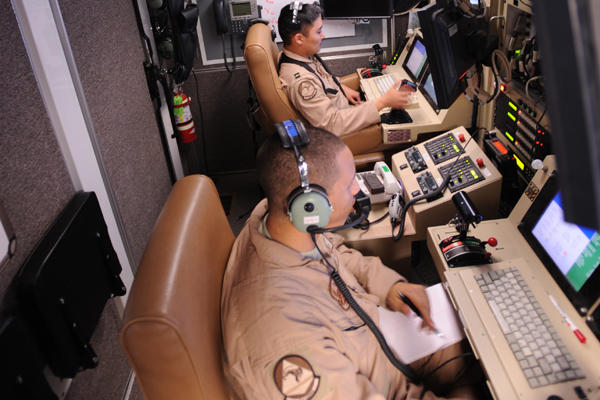The Air Force is seeking to boost by $10,000 the retention bonuses for remotely piloted aircraft -- or drones -- from $25,000 to $35,000 as part of an overall plan to stem the exodus of pilots for better pay with the airlines, Air Force Secretary Deborah Lee James said Wednesday.
James has previously said that she favored increasing the Aviator Retention Pay for manned aircraft pilots to $48,000 from the $25,000 cap, which has been in effect since 1999. "We're still working to update the retention bonuses for all," she said.
The Air Force is also looking to hire more contractors to fly unarmed UAV reconnaissance missions to make up for a current shortage of drone pilots, James said.
Both James and new Air Force Chief of Staff Gen. David Goldfein, an F-16 pilot, said the loss of pilots to the airlines was a looming "crisis" for the Air Force. The Air Force is projected to be short about 700 pilots in coming years, Goldfein said.
"Here's the reason I believe it's a crisis: Air superiority is not an American birthright," Goldfein said. "It's actually something you have to fight for and maintain. I'm hoping that if we take a balanced approach, we can get these folks to stay."
The retention bonus increases are subject to approval by Congress in the National Defense Authorization Act for Fiscal Year 2017. Negotiations on final passage will begin next month in a House-Senate conference committee, but there is no guarantee that a deal can be reached in an election year.
In the House version of the NDAA, there is a proposal for a $60,000 pilot retention bonus. The Senate version lacks any Aviation Retention Pay proposals.
At a Pentagon news conference with Goldfein, James said she feared that Congress would be unable to reach agreement on an NDAA for FY17. She said that a six-month or one-year continuing resolution to keep the current NDAA in place was a possibility, which would be disastrous for the Air Force.
"We hope that won't be the case," James said, adding that failure to reach agreement on the NDAA would impact more than 60 acquisition programs and new starts, including upgrades for the B-2 and B-52 bombers, MQ-9 Reaper drones, and C-130 cargo aircraft.
Cutbacks would also impact plans to replenish stocks of JDAMS, or Joint Direct Attack Munitions bombs, James said.
In his first Pentagon news conference since taking command five weeks ago, Goldfein said, "We will be unable to execute the defense strategic guidance" if Congress fails to pass the NDAA, thereby threatening a return to the cost-cutting sequestration process.
-- Richard Sisk can be reached at Richard.Sisk@Military.com.



























